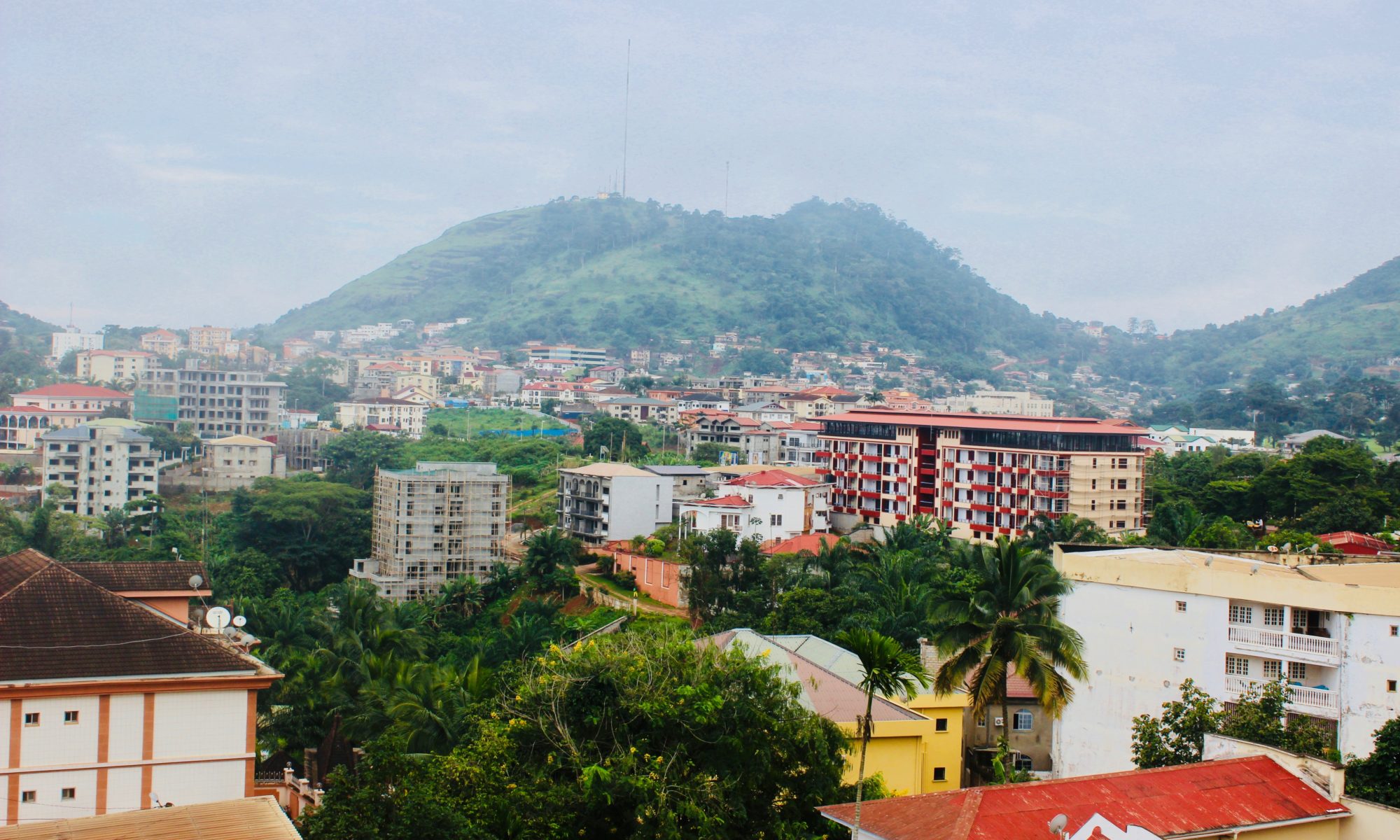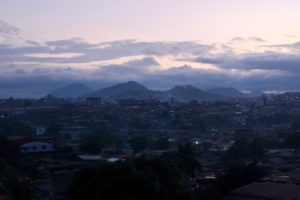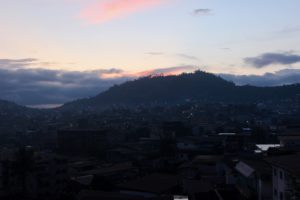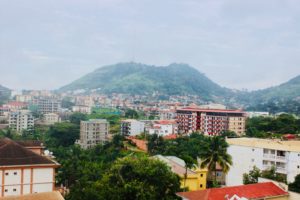I don’t think I could even pretend to be in Cameroon if I didn’t write about taking taxis here. For some basic visualization, the taxis here are yellow, ancient Hondas that probably shouldn’t still be on the road. The doors are often stripped on the inside so someone has to open them for you when getting out, wires and light fixtures are hanging out, the outside lights are DEFINITELY smashed in and the windows are often cracked or simply non-existent, so plastic wrap is a good alternative. They have seen better days. Cameroon imports all its cars from abroad and unless done privately, they are used cars. Watching them go by is a lesson in claustrophobia resistance and fitting many people into a tiny space. The five-seaters fit up to three people in the front (there is no shyness about sitting on a stranger’s lap) and up to five in the back with people literally sitting on top of each other. This isn’t including luggage strapped to the roof or tied to the open trunk. Keep in mind, it is 80 plus degrees out, humid and dusty, with cars, trucks and motorcycles pumping black exhaust into the air. Arjun and I, were nervous.
But we had to practice because taking taxis here is hard at first. A taxi will pull alongside the curb where there can be 50 plus people waiting, it will barely slow down and you have to yell where you want to go, how many people are going with you and how much you’re willing to pay. They may drive away, meaning you’ll have to raise your price or just keep trying, or they will gesture for you to get in, speeding off before you can even close the door. I had been warned by Ariane that people would strike up conversations, notably asking about my marital status. If I said I wasn’t married, the man who asked would try to convince me to marry him. If I lied and said I was, he would simply remind me that my husband isn’t in Cameroon, therefore I can definitely leave him and marry that man instead. Other topics of conversation include, Trump (apparently, we represent the entire American population) and homosexuality which is a strict no-go. Homosexuality is misunderstood in Cameroon based on a history that involved rich and powerful men luring young, poor boys into their homes to have sexual relations. Cameroon continues to be unable to detach the homosexuality of today, from the predatory acts of the past and so, no matter our real opinions, we were instructed to remind anyone who asks that America is a free country and Americans can love whoever they want.
We took taxis all over the city, through Niki Mokolo, a huge marketplace that is extremely dangerous due to the high levels of stealing and hands-down the most crowded place I have ever been in. We gave up trying to get a taxi from there when we witnessed a fist fight between two men trying to squeeze into an over-full van, the van moving down the street as then men hung off, fists flying. The market can be seen from almost any high location in Yaoundé.
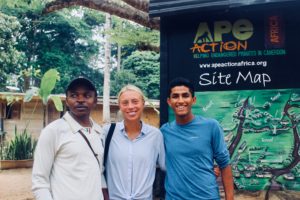
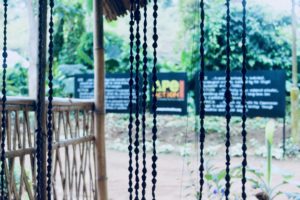
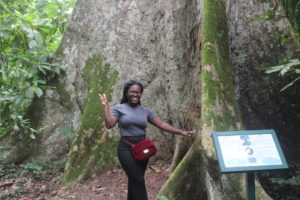
On to the primate park. Mefou Primate Park is outside the city and was started by the English. Many organizations still support it, primarily Ape Action Africa. We took a tour through the large park, stopping to be shocked by an enormous millipede as long as our hands and as fat as two fingers together. Our guide relished our disgust as he told us that they are sometimes eaten here. It was essentially a hike through the dense rainforest, stopping at different points where the fences containing the apes made clearings. We saw chimpanzees, gorillas, baboons and an assortment of other native monkeys. The park works to rescue monkeys affected by deforestation or by the commercial monkey and gorilla market. We were within a foot of the animals which was amazing.
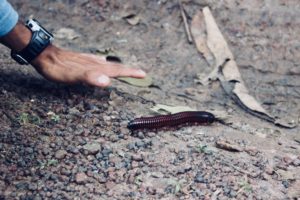
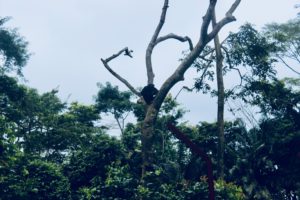
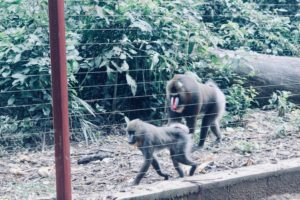
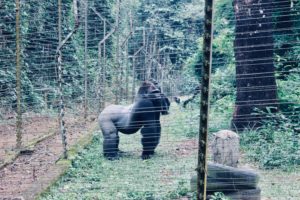
Our day ended with a trip up the second longest river in Cameroon, the Nyong, in traditional, hand-carved wooden canoes called pirogues. We sat two to a skinny boat in dining room chairs with their legs sawed off and a guide paddled us up the river, showing us how the people in the village use nets to catch fish. We stopped to explore the rainforest and found a 100-meter ancient tree that the villagers’ ancestors used to consider a god. There were trees that whose bark acts as a Viagra (much of the bark was stripped!) and those whose bark is drunk by pregnant women.
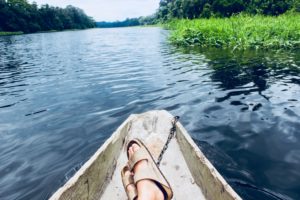
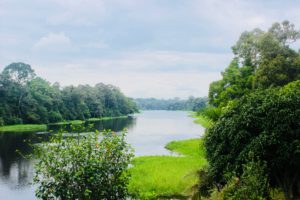
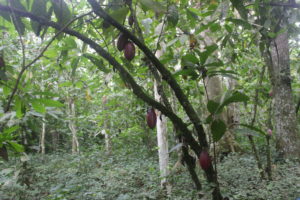
Now off to meet our host families and to move in!

